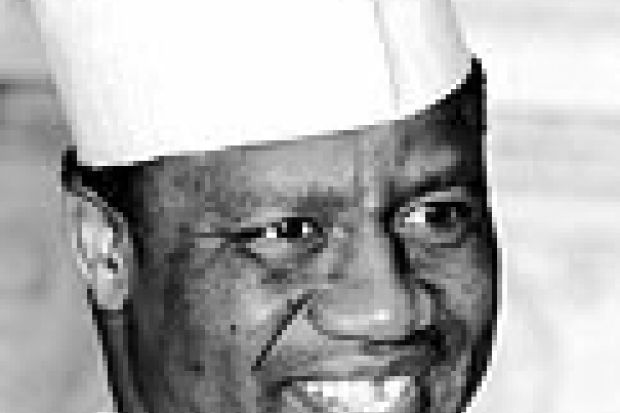Nigeria's university commission has withdrawn a licence granted to former dictator General Ibrahim Babangida to establish the private Heritage University in northern Nigeria.
It is the first time a permit has been withdrawn since the federal authorities began issuing licences for the establishment of private universities two years ago.
Commission executive secretary Jubril Munzali said that licence holders were expected to admit students within 24 months. "The Heritage University has not taken off more than two years after the licence was granted," Professor Munzali said.
So far, about five private universities, mostly owned by moderate Christian and Islamic organisations, have been established. General Abdulsalaami Abubakar, another former military president, issued the permit to his cousin, General Babangida, as he prepared to hand over power to Olusegun Obasanjo in May 1999.
Sources close to western and local banks suggest that General Babangida had hoped to build one of the best universities in Africa with fortunes amassed during the Gulf war, when the Nigerian government earned more than $13 billion (£9.15 billion).
According to a commission of inquiry set up by the late General Sani Abacha, General Babangida's ministers could not fully account for this money. Western diplomats suspect General Babangida diverted the windfall with the collaboration of retired generals.
Christiana Ismaila of Transparency International said: "Babangida gradually withdrew from the funding of Heritage University because of the anti-graft panel set up by President Olusegun Obasanjo to probe and prosecute ill-gotten wealth of some influential figures of the past military regimes.
"Since the family of the late Sani Abacha has been compelled to return millions of American dollars, Babangida felt that putting down his money to fund Heritage University might lead to an investigation."
Sources close to the university commission said that General Babangida indicated that he was no longer interested in the university. The commission could have unilaterally extended the permit as a special concession to him as a former head of state.
Another reason for General Babangida's loss of interest in the project is the establishment of a panel to investigate and recommend appropriate legal actions against violators of human rights since January 1966, when the military seized power.
Ahmad Thompson, a human rights lawyer, said: "If Babangida eventually accepts to appear before the panel, he may be asked to justify the source of funds used in establishing his private university."
General Babangida has yet to comment on the cancellation. Close aides are worried that he may be made to appear before a court to answer charges ranging from dissolution of students' and university teachers' unions to unilateral closure of university campuses and allegations of unlawful authorisation to set up a private university.
Register to continue
Why register?
- Registration is free and only takes a moment
- Once registered, you can read 3 articles a month
- Sign up for our newsletter
Subscribe
Or subscribe for unlimited access to:
- Unlimited access to news, views, insights & reviews
- Digital editions
- Digital access to THE’s university and college rankings analysis
Already registered or a current subscriber?
